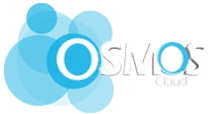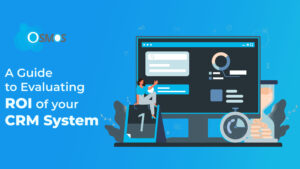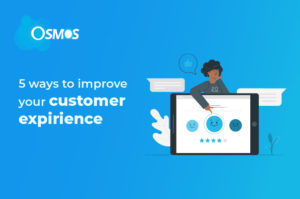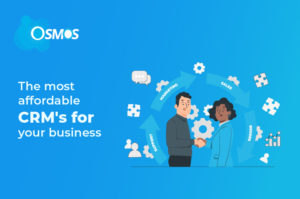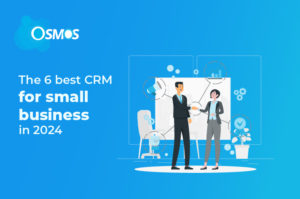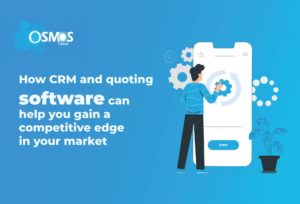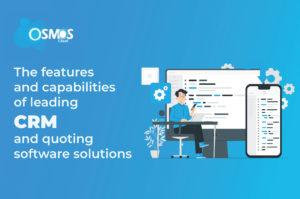ERP vs CRM: While Enterprise Resource Planning (ERP) and Customer resource management (CRM) may appear interchangeable, there is a clear distinction between the two. Most businesses are stuck in a dilemma when choosing between the two. But worry not, we have tailored a detailed guide that will clear all your quarries.
In this post, we will explore the difference between the systems. And will also look at what works best for your business.
What is CRM?
CRM is software that manages and stores all customer data and leads. It also monitors and controls how a customer interacts with the business. Overall, a CRM helps improve conversion rates with solid communication and ensuring long-term relationships with customers.
A CRM holds all relevant details of customers and leads. It includes their name, mobile number, email address, and purchase history. The information is used to provide them with better recommendations and targeted content. For instance, if a customer has recently purchased a bulk of books, your system can use this information to suggest related products.
CRM software can assist you in automating certain aspects of the business by improving communication with the customers. It boosts business’s profitability, efficiency, and customer retention rate in the long run. Moreover, it also helps the business plan different marketing strategies with customers’ insights recorded in a CRM.
What is ERP?
An ERP is a system that manages and automates time-consuming aspects of your business. It also stores and shares information through all departments with the help of the integrated application and removes most of the need for paperwork. It works by letting employees enter data into the system and share it swiftly.
Moreover, it also helps the workers spot issues at an early stage before any complications. ERP holds the role of a central database that contains everything about business finances that include:
- Account payable and receivable
- Sales volume
- Human resource planning
- Production and management of projects
- Supply networks
Apart from finances, it also touches other integral parts of the business, such as improved data sharing, analytics, and internal communication. Overall, it can be a great asset that will make a business more effective and productive.
What is the difference between a CRM and an ERP?
1) Software focus: ERP focuses on internal aspects of business, such as finance, while a CRM focuses on external factors such as customer relationship and sales. CRM is a customer-focused product that emphasizes customer satisfaction and generating leads. ERP focuses on improving business functionality and automating internal tasks.
2) Methods to increase profits: While both systems increase profit, their methods are different from one another. An ERP tries to reduce the overhead costs of the business through automation. Meanwhile, CRM works to increase profits by boosting sales.
3) Performance monitors: An ERP uses different analytic systems depending on the nature of the operation. Meanwhile, CRM metrics are easy to calculate and can be used to set measurable goals.
4) Users: Decision-makers who monitor business activities and processes often use ERP. Meanwhile, CRM is mostly used by the sales and marketing departments to deal with the consumers.
Shared features between CRM and ERP
Both systems have many shared features depending on the vendor. Some offer you the liberty to choose any modules, while others propose pre-built packages.
Below are the features that you should look for when deciding on a CRM or an ERP:
Features of ERP:
1) Financial Management: Considered as one of the most integral tools when it comes to ERP. Financial management is seen as an engine that drives the business. This feature helps minimize business spending and stay within the budget. It offers real-time access to the company’s finances with an easy-to-use dashboard.
2) Human Resource (HR): A modern ERP is equipped with tools to assist the HR department. It makes hiring, on boarding, and rolling out payrolls much easier and effective. Moreover, it can also help you automate tax payments and benefit deductions, which will help your business save money and time.
3) Supply Chain Management: The module offers tools for inventory management, shipping, and purchase management. This feature of an ERP provides an in-depth insight into a company’s supply chain management with inventory management, manufacturing, and logistics.
4) Data analysis: The collection of data to form actionable goals has been the top priority of business nowadays. With ERP, a company can assess data to explore new opportunities, increase efficiency and set long-term goals.
Features of CRM
1) Contact Management: A CRM allows users to divide contacts into groups to provide a better service. With contact management, businesses collect vital customer information and use it to create new products and marketing campaigns.
2) Sales Forecast: This feature of a CRM lets a company generate revenue predictions based on trends and collected data. With this tool, it is easy to evaluate whether the business is moving in the right direction or not. Sales forecasting is also integral in setting objectives for the future.
3) Marketing and lead management: The marketing management tool allows businesses to plan, assess and evaluate advertisement campaigns. With lead management, prospects are converted into customers with the sales funnel.
Do you need ERP, CRM, or both?
If you are looking to expand your company from a sales and marketing point of view without any need for improvements in finance, then CRM is the right choice. But on the other hand, if you are facing difficulties in meeting the client request and communication within the company, investing in ERP is a wise choice.
Both systems have different operations and add value to various aspects of the business. It is recommended that companies use both of the systems. CRM for managing all the customer-related quarries and ERP to manage internal affairs of the business.
Most companies start with CRM software and later invest in an ERP when established. For small and medium-sized businesses, a CRM is a good choice since it helps you focus on sales. But once your business has grown, you should look for investing in an ERP and integrate it with a CRM.
CRM and ERP integration
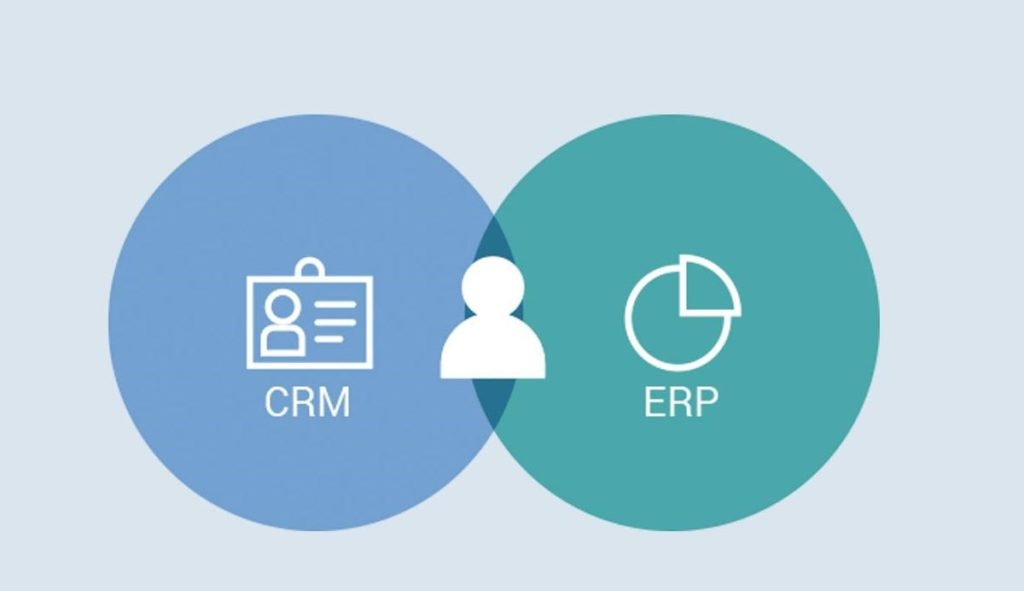
Many ERPs offer pre-built integration with a third-party CRM. But they can prove to be expensive to maintain and upgrade. However, in the long term, the integration delivers fruitful results. The sales volume reported in CRM can help the production and manufacturing departments. Any customer complaints or feedback about products will help QA ensure better quality. Moreover, delays in shipping or a shortage of stock can easily be conveyed to customers using a CRM system.
You may be interested in learning about the difference between a CRM and CMS.
Final thoughts
The systems are made to increase the company’s profit and effectiveness. They both achieve this goal in different ways. Before you make a decision, think about what your business requires at the moment. If your business needs an upgrade, then opting for either system will assist your business to perform better.
